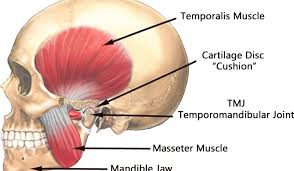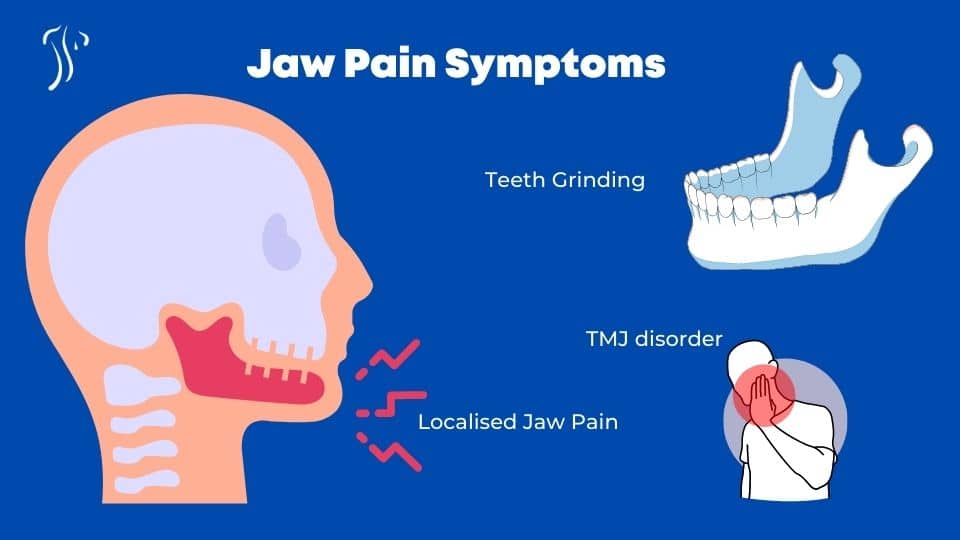
Introduction:
Jaw pain, also known as temporomandibular joint (TMJ) disorder or temporomandibular disorder (TMD), is a common condition that can significantly impact one’s quality of life. Whether you’re experiencing occasional discomfort or chronic pain, understanding the causes, symptoms, and effective management strategies is crucial. In this blog, we’ll delve into the various aspects of jaw pain, providing insights into its causes, symptoms, diagnosis, and potential treatment options.
1. What Causes Jaw Pain?
Jaw pain can be attributed to various factors, including:
- Stress: Chronic stress can lead to jaw clenching and teeth grinding, which put excessive strain on the jaw joint.
- Poor Posture: Bad posture can affect the alignment of the spine and lead to misalignment of the jaw joint.
- Bruxism: This is the habit of grinding or clenching your teeth, especially during sleep.
- Malocclusion: Misalignment of the teeth can cause an uneven distribution of pressure on the jaw joint.
- Injury: Trauma to the jaw area, such as from accidents or sports injuries, can result in jaw pain.
- Arthritis: Conditions like osteoarthritis or rheumatoid arthritis can affect the TMJ.
- Medical Conditions: Certain medical conditions like fibromyalgia or chronic fatigue syndrome can contribute to jaw pain.
2. Recognizing the Symptoms:
The symptoms of jaw pain can vary from person to person, but common signs include:
- Pain: Dull, aching, or sharp pain in and around the jaw joint.
- Difficulty Chewing: Discomfort or pain while chewing or talking.
- Limited Jaw Movement: Inability to fully open or close the mouth.
- Clicking or Popping: Audible sounds when moving the jaw, often accompanied by pain.
- Headaches: Jaw pain can sometimes trigger tension headaches.
- Ear Pain: Jaw pain can radiate to the ears, causing discomfort.
- Facial Swelling: Inflammation around the jaw area.
3. Diagnosis:
If you’re experiencing persistent jaw pain, it’s important to seek professional help. A healthcare provider, dentist, or oral surgeon can diagnose the underlying cause of your jaw pain. Diagnosis may involve:
- Medical History: Understanding your symptoms and medical history.
- Physical Examination: Checking for tenderness, swelling, and jaw movement.
- Imaging: X-rays, CT scans, or MRI to assess the TMJ and surrounding structures.
- Bite Analysis: Evaluating how your teeth come together when you close your mouth.
4. Effective Management Strategies:
Managing jaw pain involves a combination of self-care and professional interventions. Here are some strategies:
- Self-Care: Practice stress-reduction techniques, avoid hard/chewy foods, and apply moist heat to the affected area.
- Oral Appliances: Night guards or splints can prevent teeth grinding and clenching.
- Physical Therapy: Jaw exercises and manual therapy can improve jaw movement and reduce pain.
- Medications: Over-the-counter pain relievers, muscle relaxants, and anti-inflammatories can offer temporary relief.
- Stress Management: Techniques like meditation, deep breathing, and yoga can help alleviate stress-related jaw pain.
- Dental Treatments: Orthodontic treatments to correct misalignment or bite issues.
- Invasive Procedures: In severe cases, surgical interventions might be considered.
5. Preventing Future Jaw Pain:
Prevention is key to minimizing the risk of future jaw pain:
- Maintain Good Posture: Pay attention to your posture to prevent unnecessary strain on the jaw joint.
- Practice Good Dental Hygiene: Regular brushing and flossing can prevent oral health issues that contribute to jaw pain.
- Stress Reduction: Engage in stress-relief activities to prevent teeth grinding and jaw clenching.
- Avoid Excessive Chewing: Cut down on gum chewing and tough foods that can strain the jaw.
- Stay Hydrated: Dehydration can lead to muscle tension, so drink plenty of water.

Conclusion:
Jaw pain can significantly impact your daily life, but understanding its causes, symptoms, and management options can help you find relief. If you’re experiencing persistent or severe jaw pain, consult a healthcare professional for an accurate diagnosis and tailored treatment plan. By adopting preventive measures and incorporating effective management strategies, you can work towards alleviating jaw pain and improving your overall well-being.

